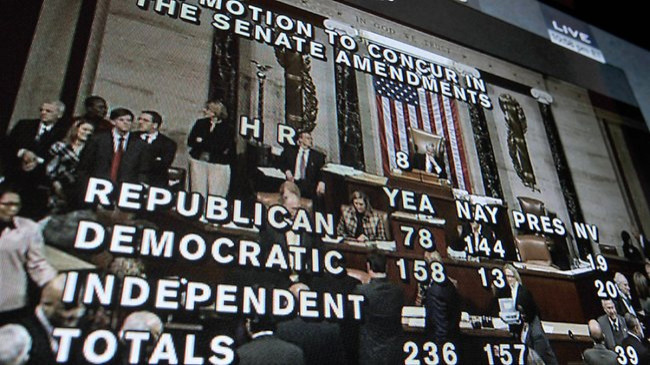Companies Showed Profits By Reporting Full Year's Tax Credit All In First Quarter

U.S. corporate accountants were able to take advantage of a tax credit at the end of the first quarter of 2013 that left company profits stronger than expected, according to a Wall Street Journal analysis published Friday.
A credit that encouraged companies to conduct research and development expired at the end of 2011, leaving companies unable to take advantage of it in 2012. This contributed significantly to the relatively depressed earnings over that year, according to the newspaper's analysis. Then Congress approved renewing it in January 2013's marathon budget legislation and apparently made some of the missed benefits available retroactively.
The analysis of 465 of Standard & Poor's 500-stock index components shows that many companies reported a full year's worth of benefits from the R&D tax credit all at once in their first-quarter results. By knowing that they wouldn't have to set aside as much money for taxes as they had to a year earlier, corporate accountants applied extra money to profits, hundreds of millions in some cases, the study found.
Participants reported profits increasing cumulatively by 6.7 percent and some of them by more than 10 percent. Meanwhile, the amount of first-quarter revenue they reported cumulatively increased by only 2.1 percent above revenue from the first quarter of 2012, and since expenses grew slightly faster, pre-tax profit rose only 0.9 percent.
"They took it all for all of last year and the first quarter of this year," reporter Scott Thurm said during an interview with WSJ Live. "They basically got five quarters of the credit all in one quarter, in the first quarter of this year. So their credits got a lot bigger, their taxes got a lot smaller and their bottom line got bigger."
Google, for example, is one of the biggest corporate research spenders in the country and its effective tax rate fell from 18.5 percent in Q1 2012 down to 7.9 percent in Q1 2013. The tech giant attributed the drop to the extension of the tax credit in its securities filing. The R&D tax credit was introduced more than 25 years ago to stimulate innovation.
© Copyright IBTimes 2025. All rights reserved.






















